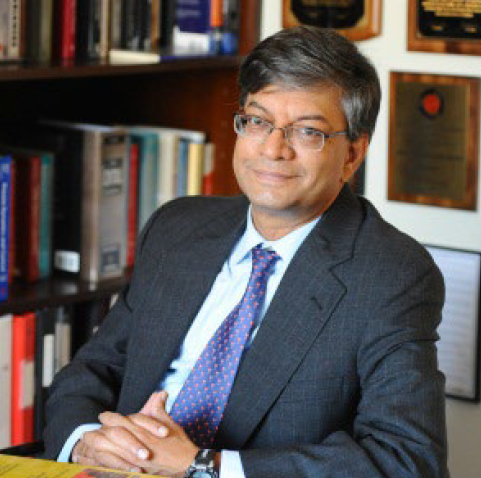
- This event has passed.
CBE Seminar: “Statistical Teleodynamics: A Unified Theory of Emergent Arbitrage Equilibrium Phenomena in Active and Passive Matter” (Venkatasubramanian, Columbia University)
October 4, 2023 at 3:30 PM - 4:30 PM
The physics of active matter, such as bacterial colonies and bird flocks, exhibiting interesting self-organizing dynamical behavior has gained considerable importance in recent years. Recent theoretical advances use techniques from hydrodynamics, kinetic theory, and non-equilibrium statistical physics. However, for biological agents, these don’t seem to recognize explicitly their critical feature, namely, the role of survival-driven purpose and the attendant pursuit of maximum utility. In this talk, I will present a novel game-theoretic framework, statistical teleodynamics, that accounts for this feature explicitly and shows how it can be integrated with conventional statistical mechanics to develop a unified theory of arbitrage equilibrium in active and passive matter.
The theory proposes a spectrum of self-actualizing capabilities, going from none to completely strategic decision-making, and envisions the various examples of active matter systems occupying someplace in this spectrum. I will show how statistical teleodynamics reduces to familiar results in statistical mechanics in the limit of zero self-actualization. At the other extreme, in an economic setting, it provides novel insights into the emergence of income distributions and their fairness in an ideal free-market society. As examples of agents in between these limits, I will discuss how the theory predicts pattern formation in mussel beds, the emergence of ant craters, and the flocking of birds.

Venkat Venkatasubramanian
Samuel Ruben-Peter G. Viele Professor of Chemical Engineering
Professor Venkat Venkatasubramanian is Samuel Ruben-Peter G. Viele Professor of Engineering in the Department of Chemical Engineering, Professor of Computer Science (Affiliate), and Professor of Industrial Engineering and Operations Research (Affiliate) at Columbia University. He earned his Ph. D. in Chemical Engineering at Cornell, M.S. in Physics at Vanderbilt, and B. Tech. in Chemical Engineering at the University of Madras, India. He taught at Purdue University for over two decades before returning to Columbia in 2011.
Venkat is a complex-dynamical-systems theorist interested in developing mathematical models of their structure, function, and behavior from fundamental conceptual principles. He considers himself an artist in science whose natural tendency is to conduct curiosity-driven research in a style that might be regarded as impressionistic, emphasizing conceptual issues over mere techniques. He strives to create a simplified but essentially correct model of reality to gain fundamental mechanistic insights. Venkat’s research interests are diverse, ranging from AI to systems engineering to theoretical physics to economics, but are generally focused on understanding complexity and emergent behavior in different domains.
Venkat received the Norris Shreve Award for Outstanding Teaching in Chemical Engineering three times at Purdue University. He won the Computing in Chemical Engineering Award from AIChE and is a Fellow of AIChE. In 2011, the College of Engineering at Purdue University recognized his contributions with the Research Excellence Award. From 2009-19, he served as Editor of Computers and Chemical Engineering. His recent book, How Much Inequality is Fair? Mathematical Principles of a Moral, Optimal, and Stable Capitalist Society, was published in 2017. Three of his papers are among the ten most-cited papers in the 43-year history of Computers & Chemical Engineering. Venkat’s other interests include comparative theology, classical music, and cricket.
